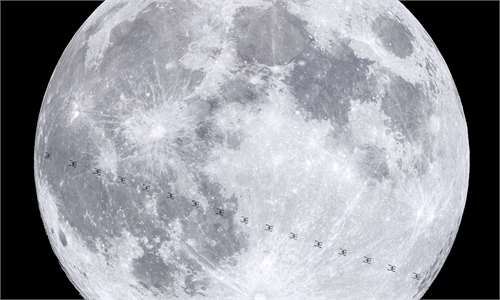IN-DEPTH / IN-DEPTH
Humans need to cooperate, not create barriers, in space explorations: Moon Village Association president
Journey to the stars
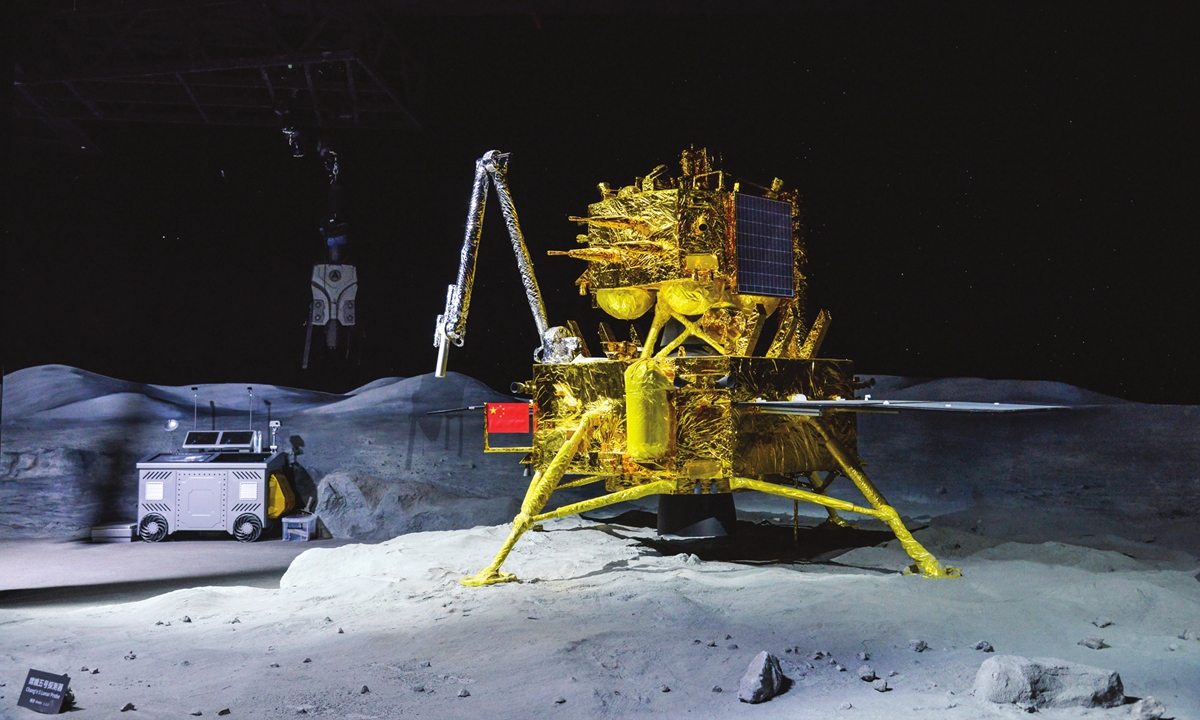
A photo taken on January 31, 2023 shows a model of Chang'e-5 on display at the Shanghai Astronomy Museum. Photo: VCG
Editor's Note:Through some of its most outstanding offerings like the Tiangong Space Station and Yutu-2 moon rover, China has made remarkable achievements in space and lunar explorations in recent years. The country is also actively engaged in international cooperation, promising to open the Chinese Space Station (CSS) to all United Nations (UN) members, with nine projects from 17 countries having been selected as the first batch of scientific experiments to be conducted in the Tiangong. What are some of China's space and lunar explorations highlights, along with its efforts to promote international cooperation in the views of international scientists? How might the current complex international political landscape hinder the process of international cooperation in space? On these matters, Global Times reporter Huang Lanlan (GT) conducted an exclusive interview with senior space policy advisor Giuseppe Reibaldi (Reibaldi), president and founder of the Moon Village Association (MVA) and executive secretary of the Global Expert Group on Sustainable Lunar Activities.
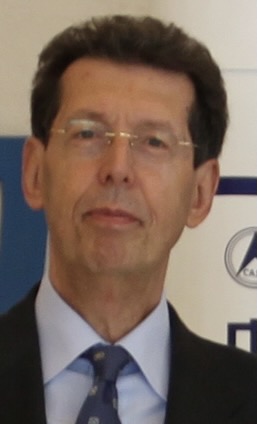
The Moon Village Association President Giuseppe Reibaldi (Photo: Courtesy of Reibald)
GT: In November 2022, six taikonauts aboard the Shenzhou 14 and the Shenzhou 15 spacecrafts successfully met in China's Tiangong Space Station. What do you think of the China built space station, and the efforts made by the country in space exploration in recent years?Reibaldi: The Chinese Space Station (CSS) can be considered a second-generation station since it includes lessons learnt from the International Space Station (ISS). The CSS is compact and as such is efficient to assemble and operate while being able to expand. China has made major achievements in space exploration since being the first in the world to land on the dark side of the moon, or the second to have a Mars lander, and in many other fields and this has been achieved in the last 10 years.
GT: You worked at the ESA for 35 years, and have a rich working experience in International Space Station-related projects. In terms of technology and application, what do you think are the respective characteristics and advantages of the smaller CSS and the larger but earlier-founded ISS?
Reibaldi: Considering that there is about a 20-year difference in the development of the CSS and the ISS, the technology available on the CSS is more state of the art for the infrastructure and may be less on the payloads as the former was launched after the infrastructure. The interface between payload and crew could be different as some of the payload on the ISS were developed with a lot of independence from the crew.
The other difference is the crew time available for experiments as the ISS is greater and requires a lot of time for maintenance while probably the CSS, for being smaller and more advanced, requires less. This information would be good to be known as it will foster more payload proposals from the global community.
GT: Recently, the European Space Agency (ESA) said it "does not have the budgetary capacity or the political intention to send its astronauts to China's space station." What do you think the prospects for cooperation between Europe and China in space are? What are the main challenges?
Reibaldi: I believe that cooperation in space between China and Europe will follow the international relations situation. Until such a time when it is stabilized, I think it will be difficult. On the other hand, space is a good area for international cooperation and probably some form of coordination could take place between the different scientific programs.
GT: China is pushing ahead with the fourth phase of its lunar exploration program, and is reportedly working on some key technologies for manned lunar landings. What is your comment on China's achievements so far in the field of lunar exploration? What is your expectation for China's future manned lunar landings?
Reibaldi: China has made extraordinary achievements in the last decade with the latest lunar missions and is the first country in the world to have softly landed a spacecraft on the dark side of the moon, opening new research and philosophical fields to humanity.
My expectation for the Manned Lunar Landing is that it is will occur as China has all the key technologies for this mission with the exception of a heavy launcher that will need to be developed. In view of this is mandate that global cooperation mechanisms are agreed upon at the level of UN for lunar activities as there will be several stakeholders operating on/around the moon.
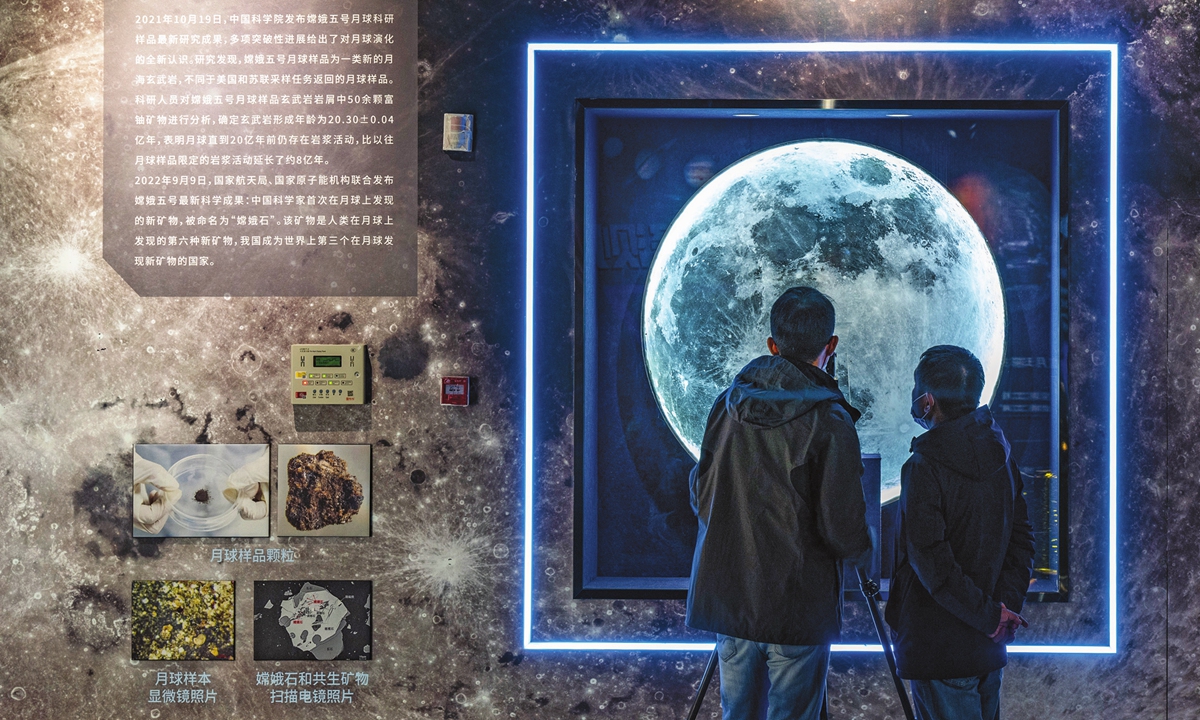
Visitors look at lunar soil samples brought back by China's Chang'e-5 probe, on display at the China Space Museum in Beijing, capital of China, on November 16, 2022. Photo: VCG
GT: The International Lunar Research Station (ILRS) is a space project jointly proposed by the national space agencies of China and Russia that is meant to be operational by 2035. To build the station, what difficulties in technology and cooperation do you think need to be overcome?Reibaldi: From a technological standpoint, it will be important to develop a large degree of automation and interoperability of ILRS components so that joint operations can take place. Furthermore, it is important that the ILRS is part of the peaceful global lunar exploration and utilization of the moon, that is the Moon Village. As indicated above there is the need to establish, as soon as possible, agreed upon ways of cooperating on the moon at the UN level. There is a concrete risk of accidents related to several missions going to the moon without agreed upon coordination mechanisms.
GT: The ILRS is seen by some as an effort by China and Russia to counter the Artemis Project by the US and its allies. What do you think of this statement? Will Artemis' exclusion of China and Russia raise your concerns about a possible zero-sum game in the lunar exploration filed?
Reibaldi: I believe Artemis and ILSR must not be seen to be in competition, but have to be part of the Moon Village, and as such, they should cooperate with each other. The moon is a hard place to live and work and is evident that rules of cooperation must be agreed upon soon. The moon is the next giant leap for humanity and as such we need to cooperate, not create barriers. The moon is a laboratory for peace and as such, countries should set up an international coordination mechanism.
GT: How can the MVA help and support the ILRS and other forms of international cooperation in lunar exploration? Do you have some near-term plans for supporting international cooperation in space?
Reibaldi: The MVA is a platform created in 2017 to foster global cooperation to implement the concept of the Moon Village that is a multi-stakeholder community engaged in the peaceful exploration and utilization of the moon.
To this end, the MVA set up the Global Expert Group on Sustainable Lunar Activities (GEGSLA) in 2021 to define concrete mechanisms of cooperation in lunar activities. This Group was comprised of more than 40 countries with representatives from industry, space agencies/government representatives, academia, and international organization. This Group included also a strong Chinese delegation.
The result of GEGSLA is a document called: "Recommended Framework and Key Elements for Peaceful and sustainable Lunar Activities." This document has been presented to the United Nations in recent days and it is the start of multilateral discussions on the issue of lunar coordination.
I hope that, considering the urgency of coordinating lunar activities, UN Member States will set up an International Coordination Group on Lunar Operations, similar to what has been created for the Global Navigation System. This Group could agree on the exchange of information, definition/implementation of a safety zone, lunar debris mitigation, interoperability, and so on.
GT: What expectations do you have for future international cooperation in space exploration? What contributions do you hope China will make to the international cooperation in this filed?
Reibaldi: For the future of international cooperation, it is necessary as we can see from the ISS program. Even in this present complex political landscape, operations are proceeding normally.
Furthermore, we will go from Earth and more the cooperation will be required. As for China's contribution, they will be very important as China will develop major space infrastructure on the moon and elsewhere, therefore these aspects need to be open to international cooperation, as far as the CSS goes. Chinese programs, like the fact that Yutu 2 is still operating on the dark side of the moon, are very exciting for the young generation and the public at large.
China would need outreach activities to inform the world about their activities and partner with other countries and NGOs to this end. The moon can be considered a laboratory of science as well as peace but each country must make an effort in it.
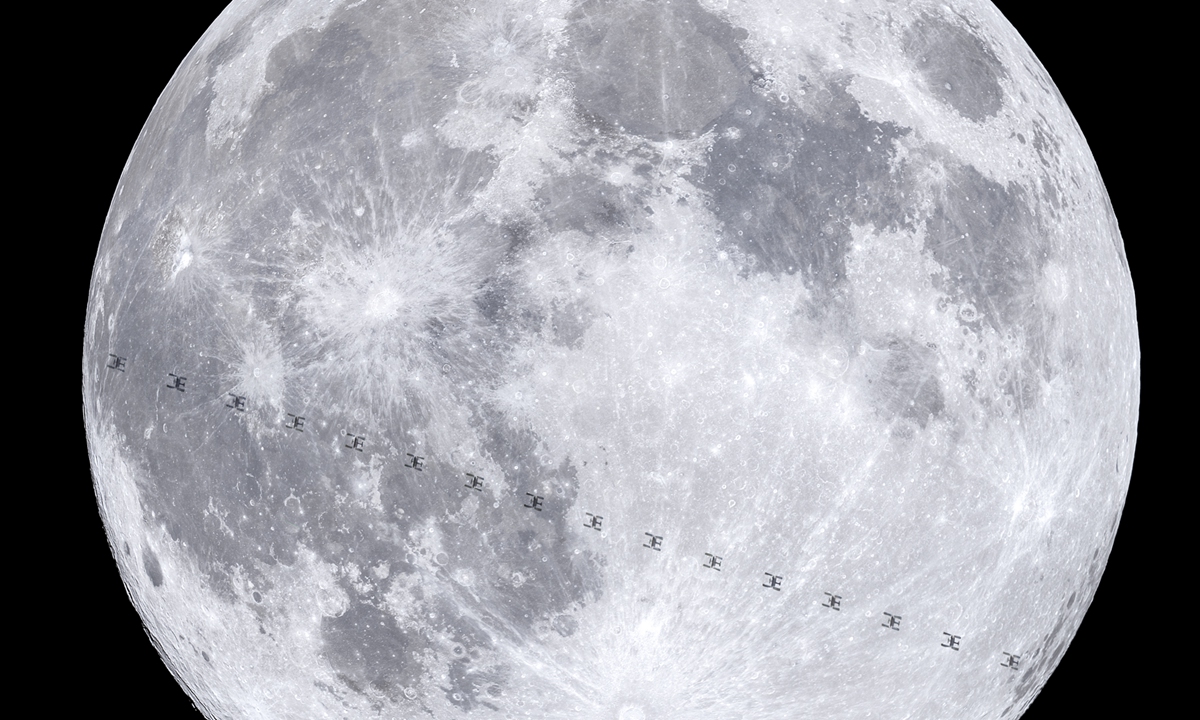
Sky watchers take a photo of China's space station orbiting the moon in Suzhou, East China's Jiangsu Province, on January 6, 2023.Photo:VCG


